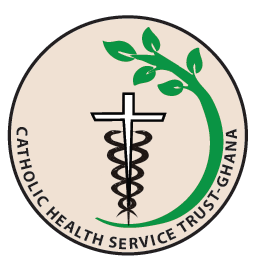
A 1999 IOM publication ‘To Err is Human’ estimated the number of people dying from medical errors alone each year to be around 98,000 in the United states alone which equates to death from one Jumbo jet crash each day perhaps began the Movement for patient safety and quality of health care with a number of governments developing strategies to ensure patient safety in health systems. In 2017 the WHO launched its third Global Patient Safety agenda: Medication without Harm.
Medication errors and unsafe medication practices are significant public health issues. They are estimated to be the leading cause of injury and preventable harm in health care systems. An estimated 1.5million preventable adverse events from medications occur each year with 1 in 20 hospital admissions traceable to medication problems1.
Medication errors and unsafe medication practices leave devastating effects on patients, their relatives and health care workers. The WHO estimates that the effect on patients in low-income countries is twice as high as on persons in high-income countries. The quantum of the problem and its effect on patients are not known in Ghana. The Catholic Hospital Bator, under the auspices of the National Catholic Health Service received support from the Ecumenical Pharmaceutical Network to assess the adherence or not to standard prescription practice and hence likelihood of harm to patients over a 15months period (June 2017 to September 2018).
Ecumenical Pharmaceutical Network (EPN) is a worldwide Christian, not for profit, independent organization committed to the provision of quality pharmaceutical services as a means to achieving global goals and targets on health and access to medicines.
Bator Catholic Hospital, is located in the North Tongu District of the Volta Region. It boasts of 25 prescribers, 1 pharmacist and a bed capacity of 249. Average daily outpatients’ attendance is 350.
The project objectives were;
- To assess the adherence to Standard prescription practices regarding compliance to Standard Treatment Guidelines and
- To monitor changes in prescription practices through successive audits and dissemination of findings.
The Ghana Standard Treatment Guidelines (STG) prescribes standard prescription practice to help reduce errors associated with medications and hence reduce harm. It amongst others emphasises the need for every prescription to satisfy “5 Rights”: Choice, Dose, Route, Frequency and Duration.
The project carried out a six months’ retrospective analysis of prescription practice on the ‘5 Rights’ in June 2017. After which monthly audits of prescription and dissemination of findings followed until August 2018. In September 2018, a six months’ retrospective end line assessment of prescription practice was again carried out and findings compared to the baseline results.
Twenty Folders each from the top 10 OPD morbidity (causes of OPD attendance) were randomly selected for analysis at each audit.
Findings showed that average drug prescription to patients was 2. Patients with hypertension and diabetes mellitus could have as much as 5drugs. Symptoms and diagnosis mismatch at baseline and endline were 15% and 5% respectively. 26% folders at baseline compared to 5% at endline had diagnosis and treatment done without laboratory assessment.
The graph below shows adherence to STG at baseline and endline.

Overall compliance was measured as proportion of all folders sampled that certified all ‘5 Rights’ per prescription.
Findings suggest that, there truly exist gaps in the medication process in health care settings and with consistent audit and dissemination of findings under an atmosphere of transparency devoid of blame, prescription practices could be modified.
Recommendation
All facilities adopt/adapt prescription practice audit tools.
Acknowledgement
- Management and Staff, Bator Catholic Hospital
- Mr. Edwin Tamakloe, Pharmacist, Bator Catholic Hospital
- Ecumenical Pharmaceutical Network
Referrence National Priorities Partnership. Preventing Medication Errors: a $21 billion opportunity. National Quality Forum, December 2010. Availabe at: http://www.nehi.net
